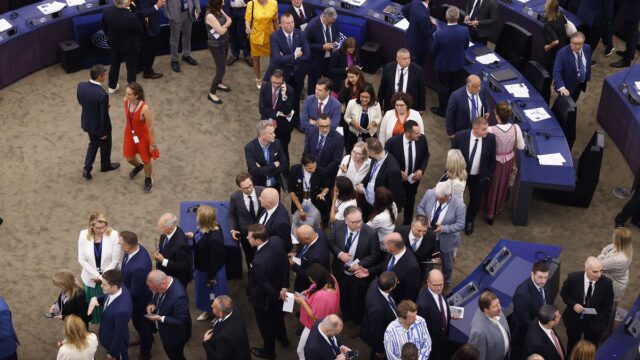Inequality increases in those considered “serious”, such as Foreign Affairs or Economy, explains an expert from the European Women’s Lobby.
The European Parliament elected in June is the first in history in which the number of women MEPs drops. But how does this affect those who lead the different commissions and how women are represented in them?
According to Jéromine Andolfatto, from the European Women’s Lobby, in many commissions the majority are men, especially in those traditionally considered “serious”. Andolfatto notes that “the portfolios that matter, where you have money, where you have power, like Foreign Affairs, for example, Budget, Economy… usually go to men in terms of running the committees.”
Furthermore, according to the expert “the proportion of members in these committees It is also very male dominated.“. For example, the foreign affairs committee It has 79 members, of which only 14 are women. Something similar happens in the Budgetwith 40 members of which eight women, or that of Economywith 60 members and 16 women.
The impact of the extreme right
This difference, says Andolfatto, is not directly related to the rise of the extreme right that has occurred in these elections. Although he insists that women elected by far-right parties do not necessarily defend rights of women, something he defines as “worrying.”
“The far-right parties or groups in the European Parliament have a fairly significant representation of women for some of them. But they are also groups that are not known for supporting women’s rights. They are quite hostiles to those of women,” he explains. That is why in this new legislature Andolfatto believes that part of his job will be “to identify who is going to support us.”
The European Women’s Lobby considers that the EU has passed key legislation in the last five years, such as the first law against gender violence. But they believe more can be done. “We also want a specific budget to be dedicated to women’s rights and to establish conditions for tenders and budget allocation,” says Andolfatto.
Added to this is aspiring to parity in the College of Commissioners, something that President Urusla von der Leyen also promotes.







